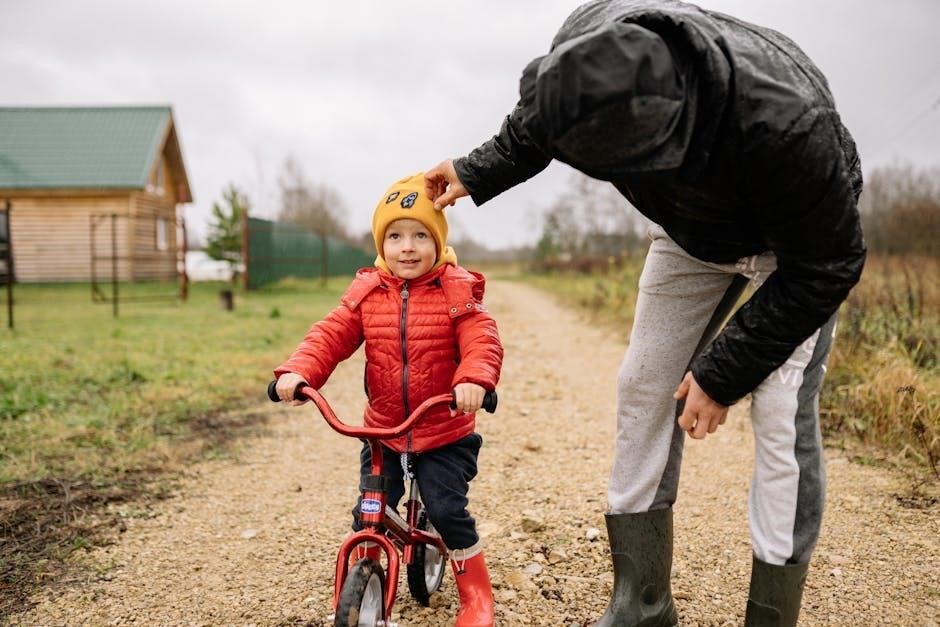Ladyboys, a term commonly associated with transgender individuals in Thailand, hold significant cultural and social importance, especially in Bangkok, where they are visible and influential.
1.1. Understanding the Term “Ladyboy”
The term “ladyboy” refers to individuals who identify as transgender women or exhibit feminine traits, often associated with Thailand’s kathoeys. It combines “lady” and “boy,” suggesting a blend of genders. While commonly used in tourism, it’s essential to recognize that “kathoey” is the preferred Thai term. Ladyboys hold cultural significance, yet their societal acceptance varies, facing both celebration and discrimination. Understanding their identity involves exploring gender fluidity, societal perceptions, and the nuances of their experiences in Thai culture.
1.2. Cultural Context in Thailand and Beyond
In Thailand, ladyboys, or “kathoeys,” are deeply rooted in culture, often celebrated in festivals and entertainment. Buddhism’s influence allows for gender fluidity, though societal acceptance varies. While urban areas embrace them, rural regions may remain conservative. Beyond Thailand, ladyboys gain international attention, challenging stereotypes and fostering dialogue on gender identity. Their cultural significance highlights a blend of tradition and modernity, shaping perceptions globally.
Social and Cultural Significance
Ladyboys hold a unique position in Thai culture, blending tradition with modernity. While celebrated in entertainment, they face societal challenges, reflecting both acceptance and stigma.
2.1. History and Evolution of Ladyboy Culture
Ladyboy culture in Thailand has deep historical roots, often linked to religious and cultural traditions. Over time, it has evolved, blending modern entertainment with traditional influences, becoming a significant part of Thai identity. Despite societal challenges, ladyboys have gained visibility in festivals and performances, showcasing their unique role in the cultural landscape.
2.2. Ladyboys in Modern Thai Society
In modern Thai society, ladyboys are increasingly visible in entertainment and media, yet they face persistent challenges. Despite growing acceptance in urban areas like Bangkok, many still encounter discrimination and social stigma. Their resilience and vibrant presence in cultural events highlight their unique role. Efforts to promote inclusivity and understanding are ongoing, supported by both local communities and international advocacy groups.

Legal and Ethical Considerations
Ladyboys face legal challenges, as their rights remain limited in Thailand. Ethical tourism practices are crucial to ensure respectful and fair interactions with the community.
3.1. Legal Status of Ladyboys in Thailand
In Thailand, ladyboys lack full legal recognition as their gender identity is not officially acknowledged. This leads to challenges in documentation, employment, and societal acceptance, despite their cultural presence.
3.2. Ethical Tourism and Respectful Interaction
Engaging with ladyboys in Thailand requires cultural sensitivity and respect. Address them by name, avoiding assumptions about their identity. Support ethical businesses and avoid objectification. Mutual respect fosters positive interactions, ensuring dignity for all parties involved. Understanding their role in Thai culture promotes appreciation and fosters meaningful connections during your visit.
Practical Tips for Interaction
Visit ladyboy bars or shows in Bangkok for authentic experiences. Greet them by name to show respect, fostering positive and meaningful interactions during your visit.
4.1. Where to Meet Ladyboys in Bangkok
Bangkok offers various spots to meet ladyboys, such as Nana Plaza, Soi Cowboy, and Patpong Night Market. These areas are known for their vibrant nightlife and diverse entertainment options, providing opportunities to interact with ladyboys in a lively atmosphere. Additionally, local bars and clubs in these districts often feature ladyboy performances, making them popular destinations for both locals and visitors.
4.2. Etiquette and Respectful Communication
When interacting with ladyboys, respectful communication is key. Address them by their chosen name, avoiding assumptions about their gender identity. Be mindful of cultural nuances and maintain appropriate boundaries. Consent and mutual respect are essential in any interaction. Avoid stereotyping or objectification, and engage in open, thoughtful dialogue to foster positive connections and understanding.

Health and Safety
Health and safety aspects are crucial, especially for ladyboys accessing care. Visitors should take precautions to ensure safe interactions, respecting boundaries and promoting mutual well-being always.
5.1. Health Considerations for Ladyboys
Ladyboys often face unique health challenges, including access to hormone therapy and mental health support. Societal stigma can hinder proper care, emphasizing the need for inclusive healthcare services. Visitors should be mindful of health practices and respect personal boundaries to ensure safe and respectful interactions with ladyboys in Thailand.
5.2. Safety Tips for Visitors
Visitors should respect personal boundaries and cultural norms to ensure safety. Researching reputable venues and being cautious of scams can enhance experiences. Engaging with ladyboys respectfully and avoiding stereotypes fosters positive interactions. Trusting instincts and seeking assistance when needed is crucial. Prioritizing respectful communication helps create a safe and enjoyable environment for all parties involved while exploring Thai culture.

Economic and Social Challenges
Ladyboys face significant economic and social challenges, including discrimination and limited job opportunities. Many rely on entertainment and sex work for income, despite gradual cultural acceptance.
6.1. Employment Opportunities for Ladyboys
Ladyboys often face limited employment opportunities due to societal biases. Many find work in entertainment, tourism, and sex work, while others pursue careers in fashion, beauty, and media. Despite challenges, some industries are becoming more inclusive, offering ladyboys roles in modeling, performance arts, and advocacy. However, systemic discrimination persists, restricting access to traditional jobs and highlighting the need for greater societal acceptance and policy change.
6.2. Social Stigma and Discrimination
Social stigma and discrimination remain significant challenges for ladyboys, often stemming from traditional societal norms. Many face rejection by families and communities, while workplace discrimination limits opportunities. Despite their visibility in certain industries, ladyboys frequently encounter prejudice, highlighting the need for greater acceptance and equality. Their resilience and advocacy continue to challenge these barriers, fostering gradual societal change and recognition of their rights.
Ladyboys in the Entertainment Industry
Ladyboys are prominent in Thailand’s entertainment sector, starring in cabarets, TV shows, and films. Their talent and charisma make them beloved performers and cultural icons.
7.1. Popular Ladyboy Shows and Venues
Bangkok’s ladyboy shows are a vibrant part of the entertainment scene. Venues like The Golden Dome and Calypso Cabaret host spectacular performances blending traditional Thai dance with modern flair. These shows feature dazzling costumes, energetic choreography, and talented artists, attracting both locals and tourists. They offer a unique cultural experience and a chance to appreciate the artistry of ladyboy performers in Thailand.
7.2. The Role of Ladyboys in Thai Media
Ladyboys have become increasingly visible in Thai media, challenging traditional stereotypes. They appear in TV shows, films, and entertainment programs, showcasing their talents and personalities. This visibility helps promote acceptance and understanding, reflecting the evolving societal attitudes toward gender diversity in Thailand. Their presence in media also highlights their cultural significance and contributions to the entertainment industry.

Personal Stories and Experiences
Personal stories from ladyboys and visitors offer unique insights into their lives, challenges, and triumphs, fostering empathy and understanding of their experiences in Thai society.
8.1. Interviews with Ladyboys
Interviews with ladyboys reveal their authentic and emotional journeys, offering insights into their lives, challenges, and aspirations. Many share stories of self-discovery, societal acceptance, and the pursuit of their dreams, highlighting their resilience and determination. These personal accounts humanize their experiences, showcasing their unique perspectives and contributions to Thai culture and society.
8.2. Visitor Experiences and Insights
Visitors often share fascinating experiences interacting with ladyboys, highlighting their charm, creativity, and resilience. Many appreciate the cultural exchange and insights gained, while others reflect on the importance of respectful interaction. These encounters often challenge stereotypes and foster deeper understanding, enriching travelers’ perspectives on gender diversity and Thai culture.
Legal and Human Rights
Ladyboys face legal challenges, including limited recognition of their gender identity. Advocacy groups push for rights, highlighting societal discrimination and the need for inclusive policies.
9.1. Legal Rights of Ladyboys in Thailand
Thai law does not officially recognize ladyboys as women, limiting their legal rights. Challenges include restrictions on changing legal gender and accessing rights tied to their identity. Advocacy efforts aim to promote equality and legal recognition, though progress remains slow. Public support is growing, pushing for inclusive policies and societal acceptance.
9.2. Advocacy for Ladyboy Rights
Advocacy for ladyboy rights in Thailand focuses on challenging societal stigma and promoting equality. Organizations like the Thai Transgender Alliance and the Rainbow Sky Association of Thailand work tirelessly to raise awareness and push for legal reforms. Through workshops, campaigns, and public events, they strive to educate society and empower ladyboys to claim their rightful place in Thai culture and society.
Ladyboys hold a unique place in Thai culture, blending tradition and modernity. Their journey toward acceptance highlights resilience and the importance of respecting diversity, paving the way for a more inclusive future.
10.1. The Future of Ladyboy Culture
The future of ladyboy culture lies in increasing acceptance and empowerment. With growing visibility in media and entertainment, ladyboys are breaking barriers, challenging stereotypes, and gaining recognition. Advocacy for legal rights and social inclusion continues to shape their journey. As societal attitudes evolve, ladyboys are likely to play a more prominent role in shaping Thailand’s cultural identity, fostering greater understanding and appreciation worldwide.
10.2. Promoting Understanding and Acceptance
Education and awareness are key to fostering understanding and acceptance of ladyboys. By sharing their stories and experiences, society can break down stereotypes and embrace diversity. Media representation plays a vital role in changing perceptions. Encouraging respectful interactions and supporting their rights helps create an inclusive environment. Promoting acceptance not only enriches cultural identity but also contributes to a more harmonious and compassionate world.
